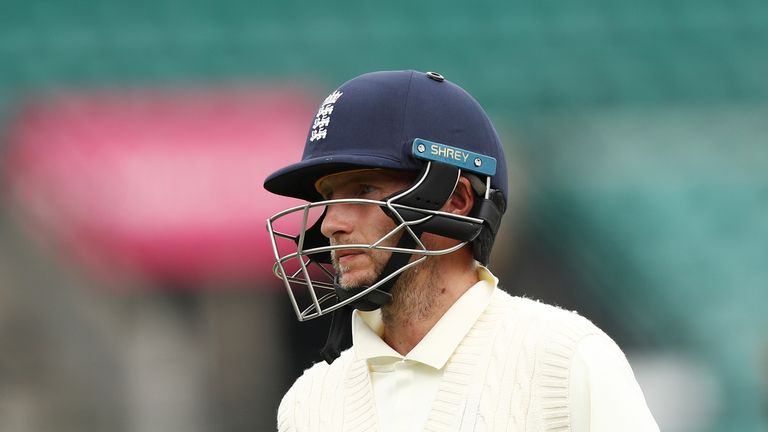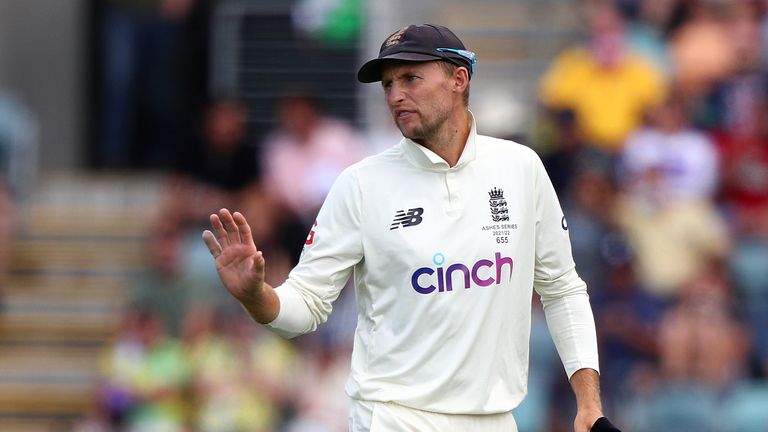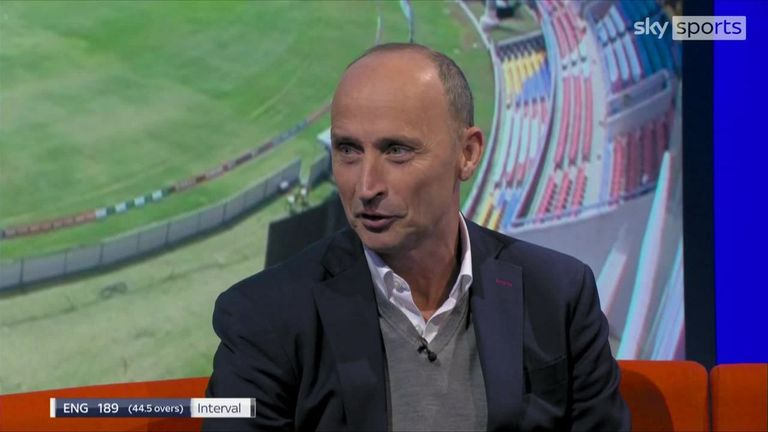What next for England in Test cricket? Joe Root's future, fixing the batting and the red-ball reset
As their 10-wicket defeat to the West Indies in Grenada made it five-straight series without victory and extended a run of 17 Tests with only one win, what are the biggest questions facing England's great red-ball reset...
Last Updated: 06/04/22 12:53pm
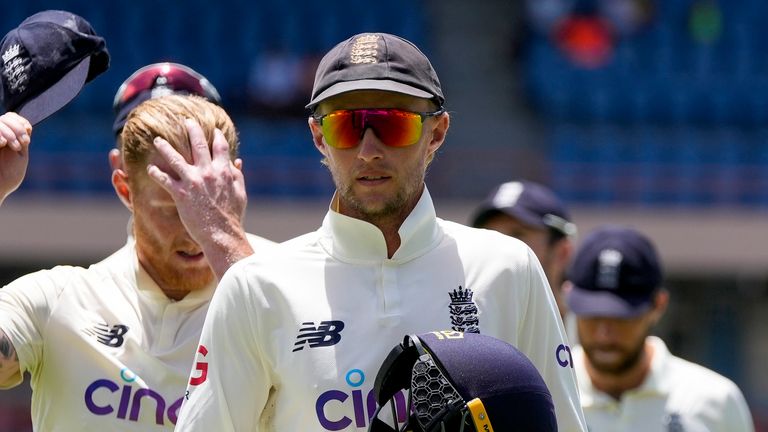
England's red-ball reset has been more a red-ball repeat on the evidence of another calamitous capitulation in Grenada as the tourists suffered a 10-wicket drubbing at the hands of the West Indies - making it a run of five series without victory.
The 4-0 Ashes debacle that preceded this tour was supposed to signal a new era of English Test cricket, and while the 'interim' appointments of managing director of cricket Sir Andrew Strauss and head coach Paul Collingwood were always stressed to be precisely that, two months on a lot of the same questions remain - along with some new ones.
Here we break down some of those most pressing concerns relative to the future of the England Test team as they attempt to finally turn a corner…
Root to stay on as captain?
England's defeat in the third Test completes a run of results in which they have only a solitary Test win to show from their last 17 matches stretching back to February 2021.
Such a miserable stretch has led to speculation over Root's future as captain, but he was fairly emphatic in his eagerness to continue in the role when speaking after yet another defeat.
- Report: England beaten by West Indies to go five Test series without victory
- 'Batting collapses the one constant of Root's captaincy'
- Sky Cricket YouTube | Cricket videos | Cricket news
"I've made it quite clear at the start of this game and throughout this tour that I'm very passionate about trying to take this team forward," Root said.
"I feel like the group are very much behind me. We're doing a lot of really good things - we just need to turn that into results now."
Strauss gave Root a vote of confidence by installing him as captain for this tour, but former England captain Michael Atherton believes his position is now "untenable".
Atherton wrote in his column in The Times: "As was obvious to anyone who was in Australia, and should have been obvious to anyone who wasn't, Root has reached the end of the road as captain.
"A change will not cure all ills - this is a poor team and England are paying the price for the neglect of the first-class game - but there simply comes a time when a captain has nothing new to say, no new methods of motivating his players and a different voice or different style is required."
Who that different voice should be, though, is another matter? Vice-captain Ben Stokes is the obvious choice thanks to the gargantuan influence he already holds as this team's talisman, but he only recently returned from a lengthy break from cricket last year "to prioritise his mental wellbeing".
Beyond that, it's slim pickings, with most not even assured of their spot in the XI let alone the captaincy.
Root, perhaps prophetically, added after the Grenada Test: "I will control all I can; I don't think it's ever in your hands."
Who is leading England's red-ball reset?
It's far from in Root's hands. The decision lies firmly in the in-tray of the ECB's new managing director of cricket, whoever that may be - and, with another Test series lost leading to yet more uncertainty, their appointment may have just been hastened.

Strauss even admitted as much, that England are facing a "ticking clock" as they look to find the right people to lead the Test side.
"The ambition is certainly to have the Test coach in place by that first Test of the summer," Strauss said when speaking earlier this month.
"In recruitment, there are all sorts of moving pieces, including notice periods and I don't think we can categorically say that, but it's the ambition."
Among the candidates rumoured, former Australia batsman - and current Durham director of cricket - Marcus North is said to be the favourite, with former national selector Ed Smith another leading contender.
A number of others have been approached, with former England captain and current Surrey director of cricket Alec Stewart said to have turned down the role, as did former New Zealand head coach Mike Hesson.
Sky Sports pundit Rob Key is another to have been approached and, speaking last week, said: "A fair few people have been asked, a fair few people are going for these jobs.
"The thing I have is that you have to weigh up how much golf you can get in doing some of these. For me, the lifestyle thing is the big issue."
As for the new head coach, the headline name linked with the post is undoubtedly former Australian batsman Justin Langer, who recently resigned after leading the national side for the past three and a half years - which included that 4-0 beating of England over the winter.
But that, along with Root's future as captain, will only be decided once England have their new man in place at the top of the food chain.
County cricket's restructure?
The 2022 county cricket season is only 10 days from starting, so any of the sweeping changes expected and, frankly, required to the structure of domestic cricket in this country are, for now, on hold.

Strauss said he wanted recommendations to be signed off "in time for the 2023 domestic season, so that really means by the end of September this year, ideally".
The interim managing director added: "I think we need to be prepared to be pretty bold and ambitious. I think incremental tweaks is not going to give us the step change we are looking for.
"I've been through two domestic structure review processes before. The problem is if you start with too many constraints, it really limits your ability to think in those bold terms. You've got to start from a blank sheet of paper.
"The winds of change are strong, they have been for a number of years and I don't see that changing anytime soon."
England's series defeat in the West Indies has only succeeded in bringing the problems surrounding the current county system - with four-day, red-ball cricket marginalised to the furthest reaches of the 'summer' calendar - back into focus.
County Championship matches being played in early April and as late as September, stretching even into October last year, is cultivating a world in which the medium-pace county pro dominates on green, seamer-friendly pitches.
Not only does that hinder the development of up-and-coming spinners and raw, fast (and at times wayward) bowlers, it also makes low team scores par for the course, leaving it difficult for batters to bang the door down for England selection through sheer weight of runs.
Root even confronted the issue head on in the aftermath of the latest Ashes embarrassment over the winter, saying at the conclusion of the fifth Test in Hobart: "Anyone coming into this Test team at the minute is doing it in spite of county cricket, not because of county cricket."
How to fix England's feeble batting?
That all being said, England should surely have found more answers for the West Indies bowlers in Grenada, especially given the familiar, bowler-friendly conditions that saw a medium-pacer - Kyle Mayers - thrive for the hosts.
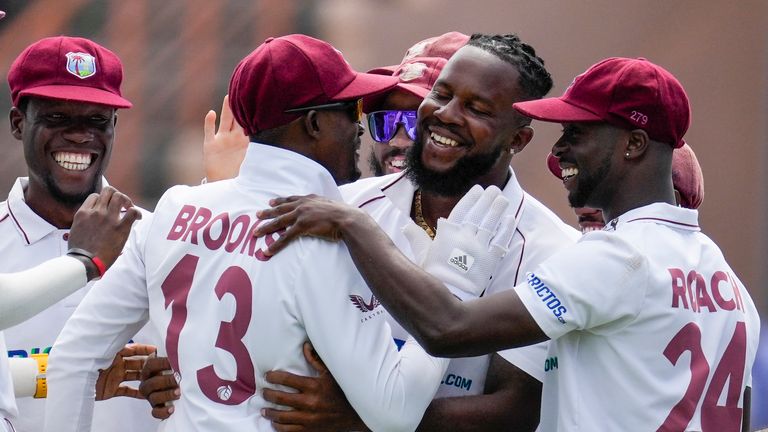
The pitch prepared for the third Test was very reminiscent of those much-maligned county conditions back home, more so than the slow, low wickets of the first two Tests on which the West Indies have grown increasingly accustomed.
Yet, England's top-order subsided twice in the Test, bowled out for 120 in the second innings, and boasting a first-innings total of 204 which was owed to the last-wicket heroics of Jack Leach and Saqib Mahmood who accounted for nearly half of that score.
"The one thread that runs through Joe Root's tenure in charge is the batting collapses," former England batsman Mark Butcher said after the defeat in Grenada.
"The fact of the matter is we've had massive collapses in this series, we were five down for 50-odd in Antigua - they don't even register on the charts for batting collapses with Joe Root as captain. There are four where England have been bowled in a session."
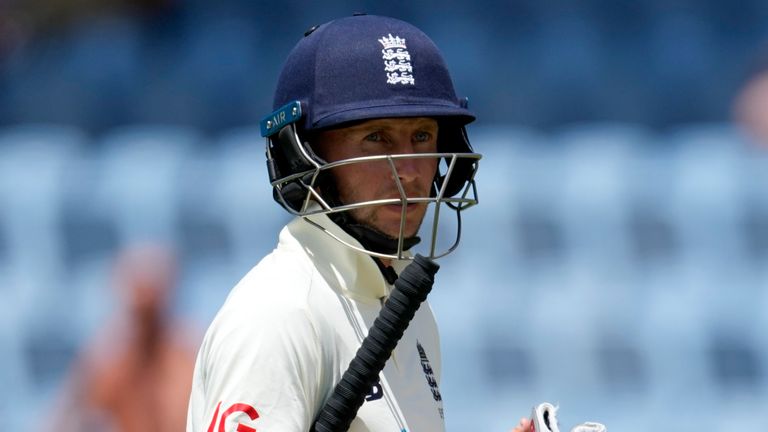
If England are eager to shake up the batting, the sorry truth is that the list of possible replacements is a slim one. Ollie Pope, their spare batter for the West Indies tour, has had his own troubles at Test level averaging 28.66 after 23 caps.
In fact, of the specialist batsmen to make their debuts for England since 2015, only one, Rory Burns, averages over 30 - and only a smidge over, at 30.32 - and that's from a sorry list that includes Adam Lyth, Alex Hales, James Vince, Haseeb Hameed, Keaton Jennings, Dawid Malan, Joe Denly, Jason Roy, Dom Sibley, among others and in addition to those who played on this tour.
It could well be from this pool that England pick again, otherwise it's the likes of the highly-touted Tom Haines at Sussex, Josh Bohannon at Lancashire, Yorkshire's Harry Brook or Somerset's Tom Abell who could be the next off the rank. None of them exactly household names.
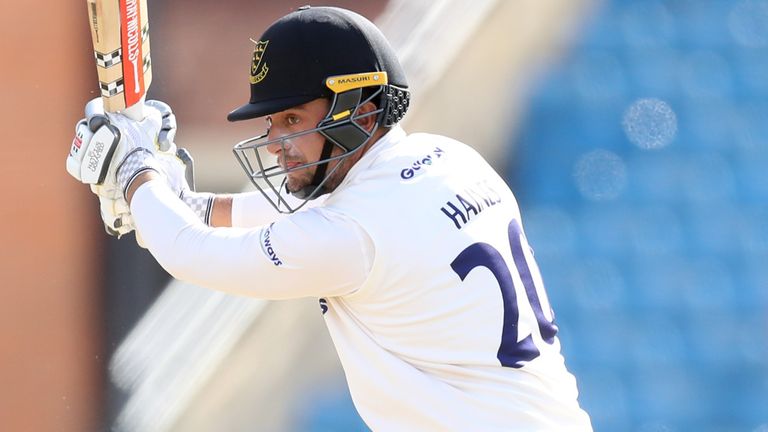
Root was keen to point to the "big strides" made by his side over the first two Tests in the West Indies, which included hundreds for Crawley, Stokes and Jonny Bairstow along with two for the skipper himself, encouraging after his promotion back to No 3 in the order.
Stokes is going nowhere, firmly cemented at No 5, and though his impact tailed off over the series, Bairstow's knock was the biggest positive of them all, coming in testing conditions with the tourists 48-4 on the first morning in Antigua. A man so often mismanaged by England, he is deserving of a settled run now at No 6.
Crawley and Dan Lawrence both served up flashes of their undoubted potential in the series, while Alex Lees showed great application at points, but none have cemented their spots in the side.
Butcher added, with a word of warning: "If under your leadership, the same thing keeps happening over and over and over again, then perhaps if you change that leadership, change the style or the messaging, or the type of players you are looking to pick then maybe you might start getting different results.
"One thing we do know, as old Albert Einstein might have said, if you keep doing the same things, you'll get the same result."
What of Anderson and Broad?
As much as the batting may have been at the root of another series defeat, the omission of England's two leading wicket-takers in Test history was a constant cloud that hung over the tour.
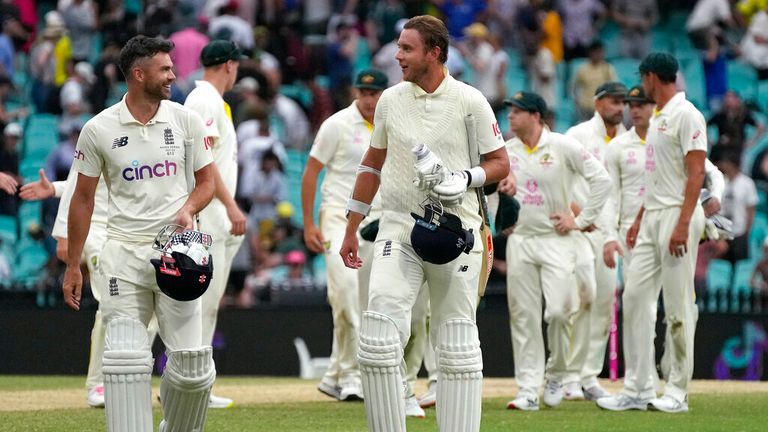
Former England Test captain Nasser Hussain, writing in the Daily Mail, described the decision to leave James Anderson and Stuart Broad out of the squad as "a cop-out".
"Clearly, under Joe and Paul Collingwood in the West Indies, England tried to create this atmosphere where they were all mates and all in it together," Hussain said. "They want to be a likeable team but you need more than that to win Tests.
"Sometimes you need those tough characters even if they are difficult to captain and coach. It's such a cop-out to leave out people who are perhaps difficult to manage and pick a team of yes men.
"The whole point of captaincy, and the aspect of the role I enjoyed the most, was trying to get the most out of people who did things differently."
Far from helping England's efforts to move on was the fact that Ollie Robinson, who would likely have spearheaded the attack in the West Indies after a hugely impressive start to his Test career, missed all three Tests due to a back spasm, while Mark Wood sat out of two and a half after picking up a right elbow injury in the opener in Antigua.
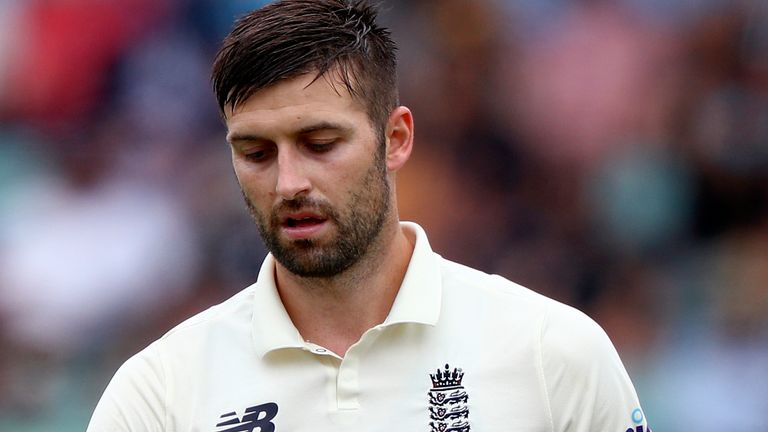
Mahmood was a real positive, the 25-year-old Lancashire fast bowler showing good pace and guile while taking six wickets in his first two Tests at an average of 22.83. Matt Fisher also acquitted himself well on debut on an unresponsive pitch in Barbados.
Chris Woakes' struggles overseas continued as he returned only five wickets for the series at an average of 48.80, with three of those not coming till the second innings in Grenada, while Craig Overton also struggled to have much of an impact either side of missing the second Test to illness.
Jack Leach probed away manfully, the left-arm spinner getting through 189.3 overs of work - 94.5 of those in the second Test alone - and picking up 11 wickets at 30.81 runs a pop, but England missed a trick by not pairing him up with legspinner Matt Parkinson, giving him a long-awaited Test debut, in either of the first two Tests.
Generally though, England's resources in the bowling department - injury issues aside - are well stocked, especially considering there's also Jofra Archer waiting in the wings, currently sidelined and eager to return.
That being said, are England really willing to leave a combined 1,177 wickets and 321 Tests worth of experience at home again come the first game of the summer?
England's red-ball reset needs to be bold and ambitious, sure, but not foolish.

